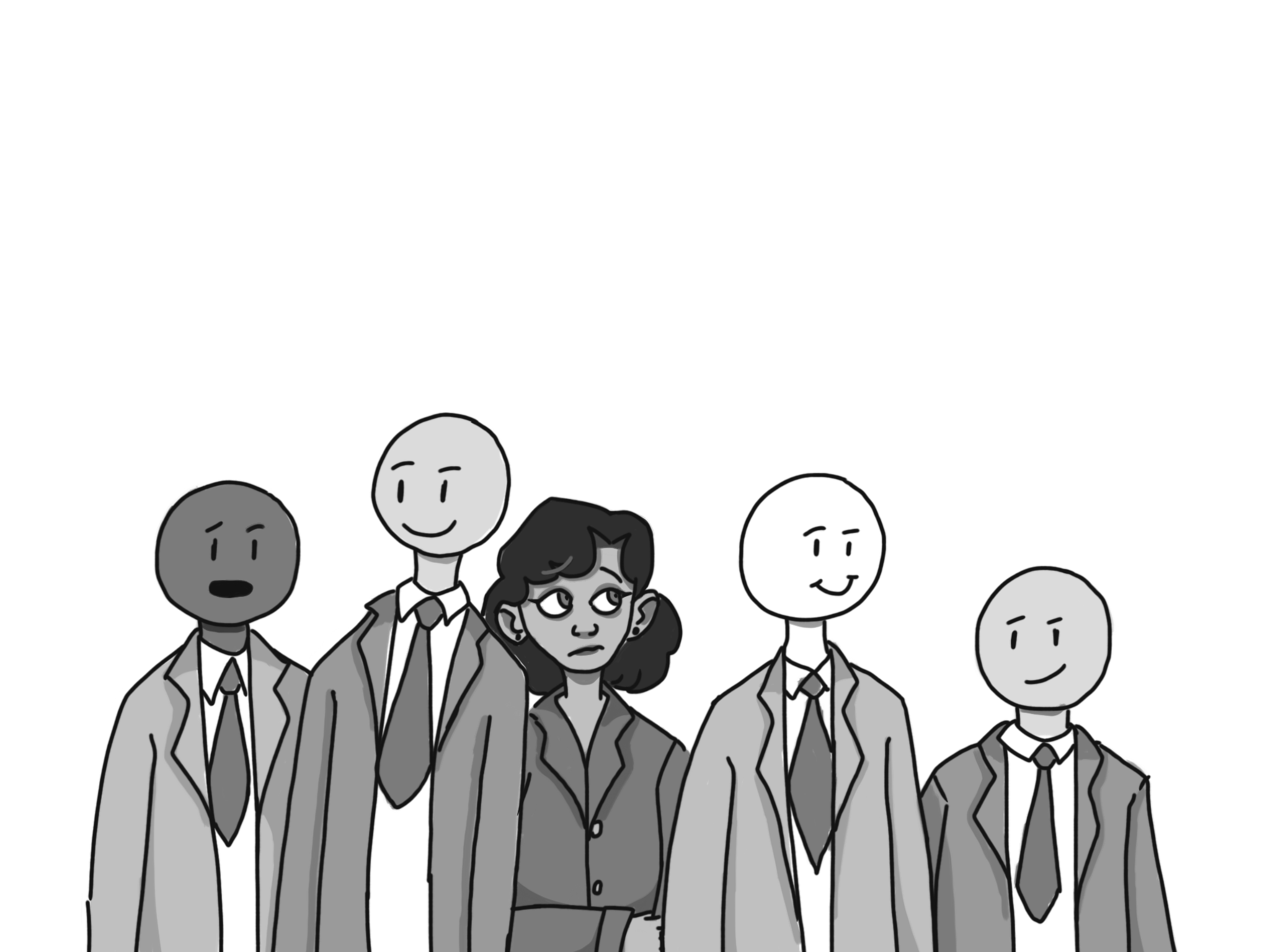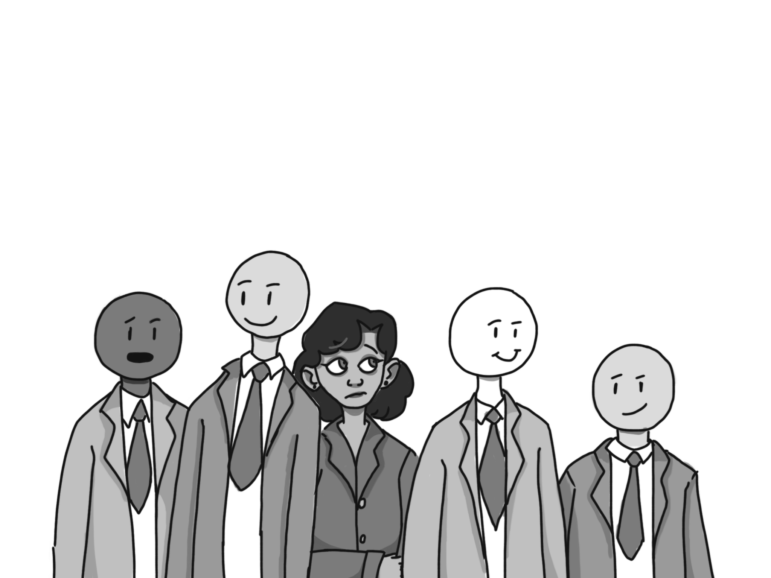
Additional reporting by Erika Pilpre

“Men and women are like right and left hands; it doesn’t make sense not to use both,” said Rep. Jeannette Rankin. Rankin was the first woman in the United States to be elected into Congress in 1916, and to this day, remains the only woman to ever be elected to Congress from Montana.
In the past century, the number of women who hold positions in government has certainly grown. In the past decade alone, several historically significant barriers have been broken. In 2007, Nancy Pelosi became the first woman to be Speaker of the U.S. House of Representatives. A year later, Sarah Palin was the second ever female vice-presidential candidate. In 2016, Hillary Clinton became the first woman nominated by a major party to be their presidential candidate.
However, while over half of Americans are female, women only hold 84 of the 435 seats in the House of Representatives and 23 of the 100 seats in the Senate, amounting to 19.3 percent and 23 percent respectively. These numbers are drastically lower, even nonexistent, in higher positions. So far, only three women have been the secretary of state and none have never been vice president or president.
The United States is ranked shockingly low in terms of female representation in government. In 1997, the United States ranked 52nd—now, it has dropped to 104th in the world.
While largely underrepresented in Congress and higher positions, there is a greater percentage of women in local leadership positions. Women make up roughly 25 percent of their state governing bodies, and it is common for mayors and council members—even student body presidents—to be female.
“We have to remember that we can not stop expressing our voices because we deserve an equal say”
“I am glad that people are recognizing the strength that women have and the potential we possess as strong leaders,” said senior Anna Zhang, who currently serves as Associated Student Body president.
“I think young women may often be scared to pursue a career in politics because it is a highly male-dominated industry,” Zhang said. “However, as women we have to remember that we can not stop expressing our voices because we deserve an equal say.”
Low female representation in government is not due to a lack of interest in politics, but rather a lack of role models and opportunity, according to a study by Notre Dame University. The study also found that teenage girls become more interested in politics during election years when female candidates are being extensively covered by the media.
However, something that deters many women from pursuing a career in politics is the idea that politics is still considered to be a “man’s world.” Campaigns for elections are expensive, and women tend to receive less funds: according to National Public Radio, men tend to raise about $500,000 more when campaigning than their female counterparts.
“Women also have less access to the networks that provide the campaign funding which invariably defines their viability as candidates,” said Maureen Freschet, San Mateo’s former mayor and current City Council member. “We talk about transparency, but women are often excluded from the ‘back room’ deals that drive legislation.”
The expectation that women should put their careers on hold to care for their children is still prevalent in many societies, and working mothers are still typically expected to be the caretakers of the family. Freschet believes that a lack of adequate childcare is the greatest obstacle that keeps women from joining politics.
“Politics is a round the clock commitment with constant demands that compete directly with family life,” Freschet said. “Many European countries are far more advanced in providing family leave and quality, affordable daycare, which gives women more freedom to pursue public life,” Freschet said. “The U.S. is moving slowly in that direction, but we are years away from the progressive family-friendly policies that many other countries enjoy.”
The U.S. is also less generous compared to countries in Europe when it comes to maternity leave. In an effort to encourage a more representative government, some states have implemented programs that make it easier for working mothers to pursue politics. Alaska, for example, built a child care center next door to the capitol building.
“I have suffered the indignity of being excluded, patronized, ignored, dismissed and denied credit for my ideas, initiatives and accomplishments”
Another reason women are deterred from running for office, specifically higher office, is the way they are perceived and portrayed compared to their male counterparts.
“Like most women, I have suffered the indignity of being excluded, patronized, ignored, dismissed and denied credit for my ideas, initiatives and accomplishments,” Freschet said. “Politics are ugly and brutal and require a thick skin.”
The stereotypes that women are more emotional than men, and that women focused on their careers are heartless, still persist. In 2016, while running for president of United States, Hillary Clinton told a story of a particular experience she encountered in law school when before a test, a group of men started to yell intense and personal insults at her. “I know that I can be perceived as aloof or cold or unemotional,” she said in her speech. “But I had to learn as a young woman to control my emotions…you need to protect yourself, you need to keep steady, but at the same
time, you don’t want to seem ‘walled off.’”
Although fears of harassment and exclusion might discourage women from pursuing higher political office, women continue to shatter the glass ceiling and break barriers in other ways. Fueled by movements addressing gender equality and sexual harassment such as #MeToo and Times Up, a record number of women are preparing to run for office. In the upcoming 2018 midterm elections, for example, 256 women are running for the House and Senate, which is more than any other election in U.S. history.
“Women of all ages must continue to work towards true gender equality at home, in the workplace and in the halls of government,” Freschet said, “so that someday being a ‘woman in politics’ will be a distinction we need not discuss.”



